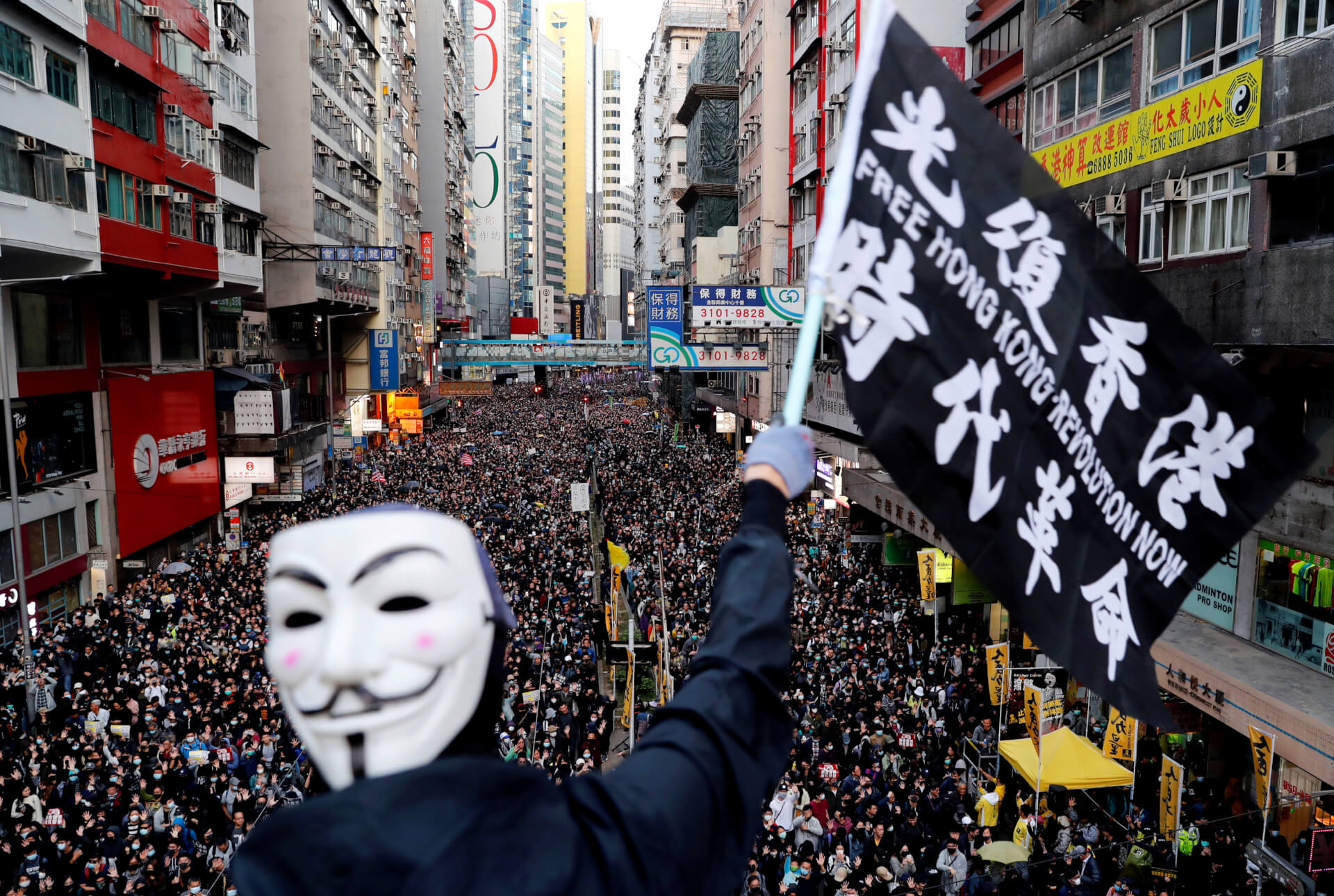Tensions mount as the US and its allies released a new joint statement criticising Hong Kong’s postponement of legislative elections. The statement comes as a response to Hong Kong’s Chief Executive Officer Carrie Lam’s announcement last week that the special administrative region would be postponing its Legislative Council elections by a year. Citing risks emerging from the COVID-19 pandemic, Lam invoked emergency laws to announce the decision to reschedule elections to September next year.
This is the second time Lam has invoked the colonial era emergency powers. In October last year, Lam utilised her emergency powers to ban mask-wearing by protesters hiding their identities during anti-government demonstrations.
Several pro-democracy activists have accused Lam of using the epidemic as an excuse to delay holding elections. The announcement to not hold elections this year came a day after 12 opposition members were barred from contesting in the prospective polls by invoking the controversial new security law.
The statement released jointly by the foreign ministries of Australia, Canada, US, UK and New Zealand expressed their grave concern for the eroding democratic rights in the autonomous region. “These moves have undermined the democratic process that has been fundamental to Hong Kong’s stability and prosperity,” the statement reads.
By delaying the elections, the current Legislative Council’s term exceeds the four-year limit as per the city’s mini-constitution, the Basic Law. To overcome this problem, Beijing would step in; Lam said, “They [China] acknowledged that there will be this problem of the status of Legco, or a lacuna in Legco, as a result of the postponement. So, what their guidance and advice to me is: the State Council will make a submission to the National People’s Congress Standing Committee [NPCSC] for its decision.”
In response to this developments, the US Treasury imposed sanctions on Lam and ten other high-profile officials from Hong Kong and mainland China. According to the Treasury Secretary Steven Mnuchin, the move is part of Washington’s bid “to target those undermining Hong Kong’s autonomy”. Mnuchin accused Hong Kong’s Chief of “implementing Beijing’s policies of suppression of freedom and democratic processes”. Before the imposition of the sanctions, Lam reportedly “scoffed” as the prospect of being targeted, stating, “I do not have any assets in the United States nor do I long for moving to the United States.”
In response to the US sanctions, Hong Kong government’s spokesperson released a statement stating that such a measure is a “blatant and barbaric interference in the internal affairs of the People’s Republic of China (PRC)”. He added that some US politicians were “using Hong Kong as a pawn in its ploy to create troubles in China-US relationship” to serve their interests. China’s Foreign Ministry expressed its “indignation” and protested the “so-called sanctions” against the Hong Kong officials. The Chinese government spokesperson said “Any US sanction is futile”, adding that “on the contrary, it will only reflect its wishful thinking to play Hong Kong as a card against China”.
According to Zhaoyin Feng, BBC News Chinese, Washington, these sanctions are more symbolic and have limited impact on the targeted officials. Mocking the Trump Administration’s move, the head of China’s liaison office to Hong Kong, Luo Huining, who was on the list of those sanctioned, said the American efforts were a waste because he had no holdings in the US. He added that he could send $100 to President Trump to give him something to freeze.
Pro-democracy activist Nathan Law urged global democracies “to take a tougher stance on China following its legal clampdown in Hong Kong”. Journalists have also expressed their concern regarding the freedom of the press in light of the controversial security law. The use of the new security law to the arrest of media tycoon Jimmy Lai Chee-ying confirms such fears.
US and Allies Release Statement Criticising Hong Kong’s Postponement of Elections
The statement comes in light of growing concerns of curtailed democratic freedom in HK
August 10, 2020

SOURCE: REUTERS
